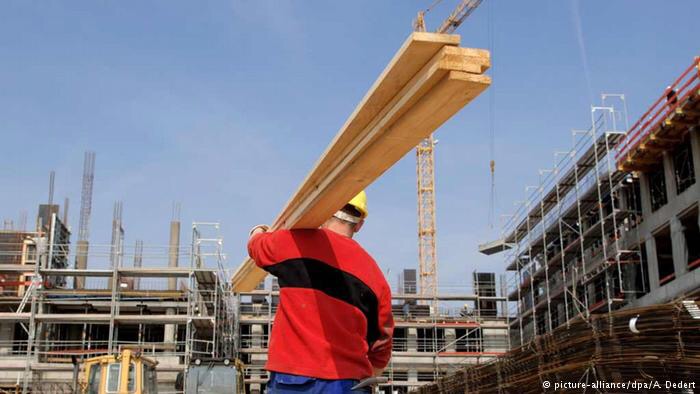One in every eight workers in the UK – 3.8 million people – is now living in poverty.
A total of 7.4 million people, including 2.6 million children, are in poverty despite being in a working family. This means that a record high of 55 per cent of people in poverty are in working households.
Those are the findings of a report out today by the Joseph Rowntree Foundation, Monitoring Poverty and Social Exclusion 2016, an annual state of the nation report.
The economic recovery has helped to stop poverty rates from rising higher, with overall poverty levels remaining flat compared to 2010.
But the new report finds that there is growing insecurity underneath positive economic headlines. Since 2010/11, when the economic recovery began, in-work poverty has increased by 1.1 million people.
The rise is being driven by the UK’s housing crisis, particularly high costs and insecurity in the private rented sector (PRS). The report finds that:
The number of people in living in poverty in the PRS has doubled in a decade, from 2.2 million people in 2004/5 to 4.5 million people today.
Almost three quarters (73%) of people in the bottom fifth of the income distribution and living in the PRS pay more than a third of their income in rent. This is compared to 28% of owner occupiers and 50% of social renters with similar income levels.
Half of children living in rented homes (46% in the PRS and 52% in the social rented sector) live in poverty.
There are 3.8 million workers living in poverty in the UK today, one million more than a decade ago. This is equivalent to 12% of all workers in 2014-15.
Once account is taken of the higher costs faced by those who are disabled, half of people living in poverty are either themselves disabled or are living with a disabled person in their household.
Insecurity for renters has risen since 2010, with the number of evictions by a landlord rising from 23,000 in 2010/11 to 37,000 in 2015/16. Over the same period, mortgage repossessions have fallen from 23,000 to 3,300.
Helen Barnard, Head of Analysis at the Joseph Rowntree Foundation, said:
“The UK economy is not working for low-income families. The economy has been growing since 2010 but during this time high rents, low wages and cuts to working-age benefits mean that many families, including working households, have actually seen their risk of poverty grow.
“As it negotiates Brexit, it is vital that the Government does not allow its focus to slip from the domestic concerns that make a huge difference to people who are just about managing. This report shows that people on low-incomes cannot rely on economic growth and rising employment alone to improve their financial prospects. Families who are just about managing urgently need action to drive up real-term wages, provide more genuinely affordable homes and fill the gap caused by cuts to Universal Credit, which will cost a working family of four almost £1,000 per year.”
Dr Peter Kenway, director of the New Policy Institute added:
“An adult in poverty today is much more likely to be young, working and a tenant living the private rented sector than 15 years ago. But modern poverty is also increasingly linked with disability. After allowing for the higher cost of living, half of those in poverty today are either sick or disabled themselves or live with someone else who is.”
The authors add that while in the recent Autumn Statement, the first under the current administration, Chancellor of the Exchequer Phillip Hammond took welcome action to invest in housebuilding, boost productivity and reverse some cuts to the benefits system by adjusting the Universal Credit taper, the Government could do more to help people who are just about managing to make ends meet by diverting the £2 billion it is planning to spend on raising the income tax threshold and the higher rate tax allowance so that it does more to help people who are just about managing.
Eighty five per cent of the money spent on these two changes will benefit people with above-average household incomes.







